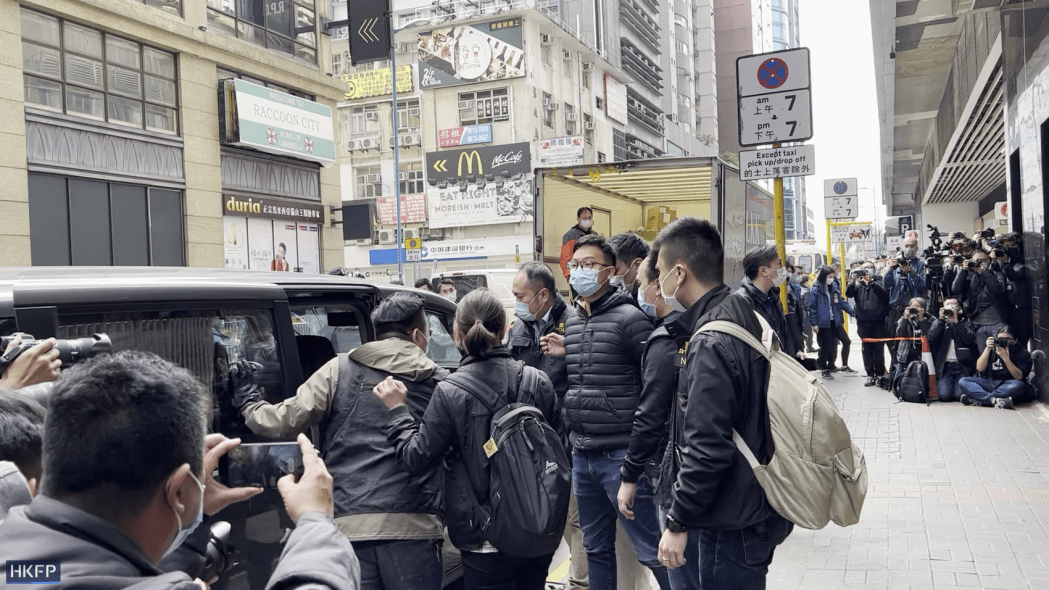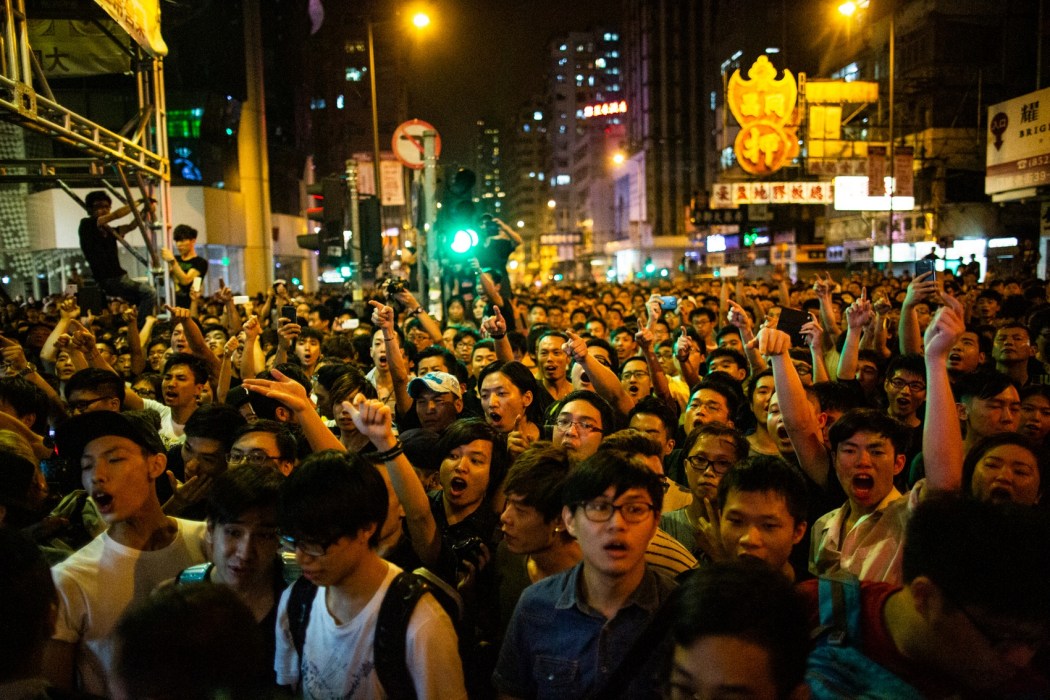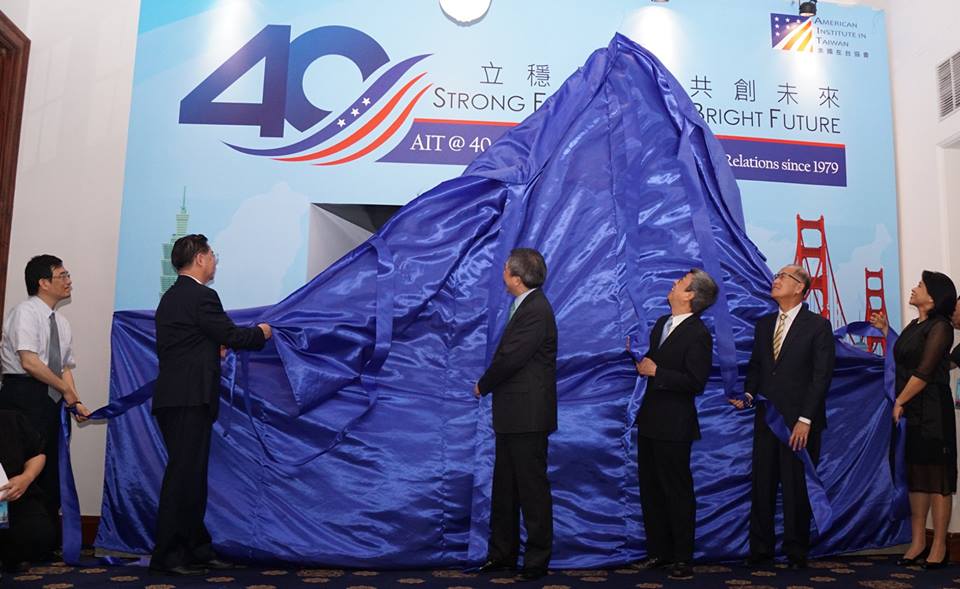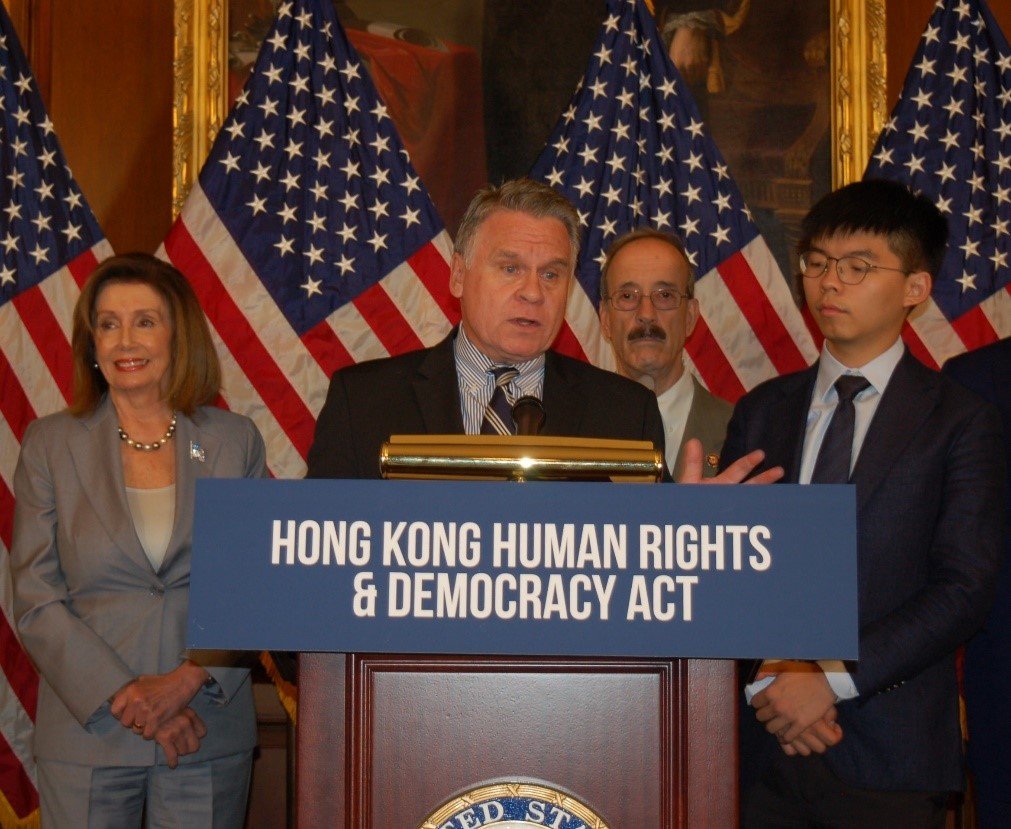Defiant, information-packed White Papers and Fact Sheets have been appearing in a steady sequence during the past year. All target sensitive dimensions of Hong Kong’s political life, and all appear to have a common purpose not immediately apparent from their titles. They are conveying a message meant for Hongkongers as well as the world beyond.
The message is about establishing a new narrative, based on Beijing’s version of events, to serve as the official rationale and justification for Hong Kong’s new national security regime.

Its inauguration was marked by a National Security Law, promulgated by Beijing for Hong Kong close to midnight, on June 30, 2020. At first glance, the new law seemed not all that fearsome and people breathed sighs of relief when the first copies came down the line next morning, on July 1. It was a public holiday, anniversary of the 1997 transfer from British to Chinese rule. Rights and freedoms would be protected (article 4). The law itself is not retroactive (art. 39). That meant transgressions committed before June 30, 2020 would not be prosecuted. Nothing could be further from the truth.
The new law’s influence is ubiquitous, and its standards are being enforced to set the norms of political behaviour backward and forward across the June 30, 2020 dividing line. After meticulous investigation of all their activities and media communications, individuals found to have followed other ways of political life in the past cannot qualify as election candidates. Pledges to change are not enough. There must be proof of sincerity, proof that the new norms have been embraced and can guarantee future performance.
The standards for granting bail are similarly futuristic but based on past behaviour. There must be reason to conclude that the accused will not reoffend in the same manner that has put them behind bars in the first place.

As a net result, Hong Kong’s democracy movement has been decimated. Virtually all its civil society groups and associations have disbanded due to the pressures exerted by the new national security police standards and strictures.
Space for the free and independent circulation of political views and information is shrinking under the pressure of accusations about seditious intent. A “fake news” law is being contemplated, with all the uncertainties that legislation implies. Fake news can mean deliberate disinformation or just opposing views.
New standards are being applied for the administration of justice by politically appointed national security judges and these standards are migrating to other related kinds of cases.
The electoral system — for Hong Kong’s Chief Executive and its Legislative Council — has been completely redesigned. It now excludes by definition, and by the standards imposed, all of Hong Kong’s previously most popular vote-winning politicians and activists. Their orientation was pro-democracy despite the differences between and among them.

All have been relegated to the category of anti-China disrupters. Only tried and true pro-government loyalists can qualify to compete for elective office, or any other position related to Hong Kong’s institutions of government. Hong Kong elections are now openly advertised as “patriots only” events.
Beijing officials are well aware of the international condemnation their national security clampdown has received. They are seen as reneging on the initial promises they made ahead of 1997. These were about allowing Hong Kong a “high degree of autonomy” while maintaining all the basic rights and freedoms; with the added bonus of being able eventually to elect the Chief Executive and Legislative Council by universal suffrage.
All this was written by Beijing into Hong Kong’s new Basic Law, to serve as its constitution for at least 50 years after 1997. The new documents represent Beijing’s official attempt to explain and establish the rationale for the city’s new governing order.
The new narrative is built on two major planks. The first aims to establish categorically and without question that authority resides at the Centre — everyday shorthand for the central government, which is led by the Communist Party. All the 1997 promises about autonomy and universal suffrage must never be allowed to challenge or dilute the Centre’s power and authority.

Hong Kong’s democracy movement allegedly made demands that would have done so. One of them, for example, was the popular idea that grew during the 2014 campaign lead-up to what was to have been Hong Kong’s first universal suffrage election for Chief Executive in 2017. The demand was for some sort of civic nomination to determine the candidates prior to the election, in effect forcing Beijing to accept a Chief Executive it had not fully vetted and approved. Beijing’s version was to allow only Beijing-approved candidates to compete.
“Foreign force” intrusions constitute the second plank. These are held to be the chief cause of local political disruption and responsible for all the obstacles Beijing has encountered along the way, making it impossible to govern in accordance with the benign promises of 1997.
Hong Kong’s own pro-democracy movement together with its demands and debates do not signify as a force worthy of serious mention in these documents. The participants are relegated to the category of “anti-China disrupters” manipulated by foreign actors in order to undermine Beijing’s governing authority here. The implication is that if there had been no foreign influence, Hong Kong’s democracy movement would not have existed.
These assertions constitute the basics of Beijing’s new “party line” narrative, intended to define Hong Kong’s 1997-2020 past and its new national security regime present.

The narrative actually represents a fascinating example of how history can be rewritten and the past made to disappear before our eyes. Contemporaries will note the difference. But as time passes and without other authoritative accounts, this version will prevail in all official Chinese sources, and eventually in many others as well, where this new orthodoxy will dominate.
The documents
So far, one White Paper and two Fact Sheets have been issued since 2020. The White Paper focuses inward, on Hong Kong’s political development since its 1997 return to Chinese rule. Issued on December 20, 2021, the day after Hong Kong’s first revamped Legislative Council election on December 19, the White Paper was entitled “Hong Kong: Democratic Progress Under the Framework of One-Country, Two-Systems.” It was only the second such formal document issued since 1997.
The first was a 2014 White Paper on the practice of the one-country two-systems policy and appeared in the midst of Hong Kong’s community-wide debate over the design of what was to have been the first universal suffrage election for Chief Executive in 2017.
This document focused on the central government’s extensive powers in relation to the initial promises about autonomy, which had continued as a source of debate and controversy. But there were no specifics about what kind of universal suffrage the central government had in mind.
The Fact Sheets focus outward, to external relations or “foreign forces” and specifically Beijing’s accusations against the US, held to be the chief cause of all Hong Kong’s troubles. The first such document was issued on September 24, 2021, soon after Hong Kong’s newly revamped election routines began with the preliminaries for the Chief Executive selection. This document was titled: “Fact Sheet: US Interference in Hong Kong Affairs and Support for Anti-China Destabilising Forces.”

The final document has just been issued, on May 7, and is titled “Fact Sheet on the US National Endowment for Democracy’s Work in Hong Kong.” The issue date was one day before Hong Kong formally endorsed its first Chief Executive under the new election system.
All these documents surrounded key steps along the way as Hong Kong proceeded with the routines of its newly revamped election cycle. Each document seemed timed to serve as a media event, designed to deflect local and international attention from Hong Kong’s new “patriots only” electoral system and the national security regime it is meant to serve. Both had received a less than stellar reception and the documents seemed to be Beijing’s way of toughing it out, answering back, and defying public opinion everywhere.
The White Paper on democratic development
Unfortunately, this presentation only repeats the same basic mistake that has carried on since then-paramount leader Deng Xiaoping’s discussion with Hong Kong’s Basic Law drafters in 1987. He seems to be the only Chinese official, whether high-ranking or low, to acknowledge the differences between Western-style democracy and what Beijing calls democracy under Communist Party rule, or mainland-style for want of an official term.
Many important words in the two variants are the same: universal suffrage, citizens’ rights and freedoms, an independent judiciary. But in real-time practice, Communist Party rule makes all the difference. Yet at no time did Beijing officials explain their endless delays and excuses in terms of that basic difference. Nor did they acknowledge that Beijing never had any intention of allowing anything like Western-style democracy to take root here.

Hong Kong and the outside world read the Basic Law’s words and promises in terms of their Western-style equivalents, which was the only thing they knew. Beijing apparently never meant the promises to be implemented in that Western way, yet never bothered to say so. But at least Deng Xiaoping knew the difference.
Even now it is only possible to deduce that when Hong Kong’s 1990 Basic Law promised universal suffrage elections for both the Chief Executive and the Legislative Council, the promises made by Beijing were for the mainland-style equivalent of universal suffrage, autonomy, free speech, judicial independence, and all the rest. This masterful long-running sleight of hand has continued throughout. And the same deceptive use of words continues throughout the December 20, 2021, White Paper as well.
It presented Beijing’s view of the scenes that have unfolded here since 1997, and in this version, Beijing claims to have offered opportunities for progress on the all-important issue of universal suffrage elections. But Hong Kong’s pro-democracy partisans refused to accept its good intentions.
With these misconceptions not only unexplained and unresolved but not even addressed, the White Paper then blandly resumes Beijing’s original refrain. The National Security Law has changed nothing. Hong Kong’s one-country, two-systems design remains intact, universal suffrage elections are the goal and could have been achieved much sooner but for Hong Kong protesters’ resistance. All the rights and freedoms promised in the Basic Law remain as they were before June 30, 2020.

The narrative proceeds through five sections: ( I ) Under British Colonial Rule There Was No Democracy; ( II ) The Return of Hong Kong to China Ushered in a New Era for Democracy; ( III ) The Central Government Is Committed to the Development of Democracy in Hong Kong; (IV) Anti-China Agitators Undermine and Disrupt Democracy in Hong Kong ( V ) The Development of Democracy in Hong Kong Is Back on Track.
It’s all America’s fault
The documents then go on to absolve Beijing of all responsibility by displacing it onto “foreign forces” and especially the United States.
The Fact Sheet on US Interference in Hong Kong Affairs appeared in September 2021. Its arguments are laid out in five sections:
( I ) Enacting Hong Kong-related Acts, vilifying China’s policy on Hong Kong, meddling in Hong Kong affairs.
(II) Imposing sanctions in an attempt to obstruct the implementation in Hong Kong of the National Security Law.
(III) Making unfounded charges against HK affairs and law enforcement actions taken by the police, thus trying to undermine Hong Kong’s prosperity and stability.
(IV) Shielding and supporting those who are opposed to China and aim to destabilise Hong Kong by advocating Hong Kong independence and spreading political disinformation.
( V ) Colluding with other countries to exert pressure and teaming up with allies to interfere in Hong Kong affairs with irresponsible comments and via joint statements.

The themes are not new. In recent years, they have provided the fallback positions when pro-Beijing sympathisers were trying to make their case in the company of sceptics. The focus was always on money. The US and other foreigners were paying Hong Kong’s so-called pro-democracy activists to organise and agitate. “Well, they’re being paid to do it, you know,” was a common assertion.
Asked for proof, it was never forthcoming. The storyline came from official sources but for most of the tea-table gossipers it was just hearsay information. Now the blanks are being filled in and the assertions presented in more authoritative form.
The list is comprehensive but also well-known since it was well-recorded in official and media sources at every step along the way. Hong Kong activists visited foreign capitals regularly, mainly Washington and London, where they waged an enthusiastic lobbying campaign urging officials and politicians to provide whatever help they could.
After President Donald Trump signed the Hong Kong Human Rights and Democracy Act in November 2019, thousands of activists marched up Garden Road to the US Consulate, on December 1, to thank Washington for its efforts.
Chinese officials were incensed. The bills accused Beijing of undermining the high degree of autonomy everyone thought Hong Kong had been promised in 1997. Among other things, they authorised the US government to impose sanctions on relevant officials.

In July 2020, Trump signed into law the Hong Kong Autonomy Act, as well as a presidential order that included measures to suspend or eliminate Hong Kong’s special trade status, separate from that of China. It had initially been granted on the assumption that Hong Kong would remain autonomous.
But the question remained unaddressed and unanswered: was US interference the cause or the consequence of Hong Kong’s democracy movement? Beijing portrays itself as the victim and the US as the lead actor. Its argument is that the US government, officials, and political representatives provided aid and encouragement, and must therefore be held responsible for all that transpired.
The National Endowment for Democracy and colour revolutions
The most extravagant claims and accusations were reserved for the most recent fact sheet, on the work of the National Endowment for Democracy (NED), not just in Hong Kong but globally. In this account, the NED’s reach is worldwide and Communist Party-led governments everywhere are in its sights. As a result, China’s is the last major such government left standing.
The 1989-91 break-up of the Soviet Union is the most dramatic result — with its reverberations continuing to this day in the current Russian invasion of Ukraine. Beijing is adamant that Hong Kong must not become a stepping-stone for operations designed to destabilise and undermine the Chinese Communist Party’s authority in the same way.
If the truth could ever be known, it was probably fear of a cross-border spillover effect from Hong Kong’s democracy movement that prompted Beijing’s national security clampdown here — as much as concern about disruption in Hong Kong itself. Fear of foreigners, especially the United States, using Hong Kong as a base and a bridge to target Beijing is as old as the People’s Republic itself, dating back to the Communist Party’s civil war victory in 1949.
According to a Chinese Foreign Ministry spokesman’s introduction, the National Endowment for Democracy is a US government-funded enterprise that manipulates non-government organisations around the world through the provision of funding. The aim is to “conduct subversion, infiltration and sabotage to serve US strategic interests,” making it in effect a “second Central Intelligence Agency.” He said the US had long used democracy as a weapon to undermine democracy and meddle in other countries’ internal affairs.
This Fact Sheet contains six sections: (1) organisational structure; (2) organising colour revolutions to subvert state power; (3) colluding with local political groups to meddle in other countries’ internal affairs; (4) funding separatist forces; (5) producing disinformation and anti-government narratives; (6) funding academic activities for the purpose of ideological infiltration.
As Beijing sees it, some spectacular successes can be attributed to the enterprise, most notably the “colour revolutions” and other activities that led to the break-up of the Soviet Union. The NED had provided financial support to Solidarity, helping its movement overthrow the Polish government that began the dramatic changes in Eastern Europe. The NED financed the Velvet Revolution in Serbia, participated in the Rose Revolution in Georgia, was a major player in the Orange Revolution in Ukraine. The NED was also allegedly an important enabler of the Arab Spring with its reverberations in Egypt, Libya, Yemen, and Algeria, and similar events in Latin America.
Turning to Hong Kong, the NED’s work focused on colluding with local political groups to meddle in Hong Kong elections and thus interfere in China’s internal political affairs. It was affiliated with the National Democratic Institute (NDI). The list of projects to which the NDI contributed funds included Hong Kong’s most politically benign — like Baptist University’s Transition Project and the University of Hong Kong’s “Design Democracy” website.
But the NDI also allegedly funded the July 1 marches orchestrated by Hong Kong’s pro-democracy opposition, beginning with the July 1, 2003 march protesting the passage of national security legislation. In this version of events, the NDI’s influence seemingly knew no bounds.
As for the NED, it allegedly gave full support to the idea of Hong Kong independence, Beijing’s catch-all term that has evolved to the point that it is now attached to all protesters and separatists regardless of their affiliations or advocacies. The NED sponsored projects on labour rights and political reform and human rights monitoring, and “was behind almost all street demonstrations” in Hong Kong.
Indeed, since 1994, the NED has funded “opposition organisations, student movement groups and media outlets” and “manipulated them to stage demonstrations and protests.” Groups included the Hong Kong Human Rights Monitor and the Hong Kong Confederation of Trade Unions.
The document specifically accused the NED of covertly organising, planning, directing, and funding many of Hong Kong’s large-scale student movements including Occupy Central in 2014, and the 2019 protests sparked by the government’s extradition law amendment bill.
In 2019, the “NED went from behind the scenes to the front line, directly engaging with major anti-China destabilising forces in Hong Kong and offering subsidies and training to those involved in the riots.”
In May 2019, people trying to stir up trouble in Hong Kong such as the founding chairman of the Democratic Party, Martin Lee, founding chairman of the student group Demosisto, Nathan Law, and a former chairman of the Hong Kong Alliance in Support of Patriotic Democratic Movements in China, Lee Cheuk-yan, attended an event in Washington where they were said to have openly lobbied for US intervention in Hong Kong affairs.

In September 2019, the NED recruited anti-China elements in Hong Kong to join the board of directors of a Washington-based lobby group, known as the Hong Kong Democracy Council. This exposed the relationship between Washington and Hong Kong’s anti-China forces. Most of the Hong Kong board members are leading figures working to destabilise Hong Kong, according to Beijing.
And so, the tea table gossip about bought-and-paid-for protesters has become the official narrative. All the Sunday afternoon protest marches with the collection boxes along the route, all the public forums and debates and university seminars, the candidate-coordination routines at election time when there were always too many candidates chasing too few council seats — everything has disappeared from the official record.
Hong Kong’s democracy movement has been reduced to just another case of American meddling in other people’s politics. Only this time there seems to be a suspicion that it was all orchestrated in pursuit of what Beijing fears is the ultimate prize — a colour revolution in China itself, using Hong Kong in its old role as a base for anti-communist mischief-making.
Support HKFP | Policies & Ethics | Error/typo? | Contact Us | Newsletter | Transparency & Annual Report | Apps
| HKFP is an impartial platform & does not necessarily share the views of opinion writers or advertisers. HKFP presents a diversity of views & regularly invites figures across the political spectrum to write for us. Press freedom is guaranteed under the Basic Law, security law, Bill of Rights and Chinese constitution. Opinion pieces aim to point out errors or defects in the government, law or policies, or aim to suggest ideas or alterations via legal means without an intention of hatred, discontent or hostility against the authorities or other communities. |
Help safeguard press freedom & keep HKFP free for all readers by supporting our team

More HKFP OPINION:
HKFP has an impartial stance, transparent funding, and balanced coverage guided by an Ethics Code and Corrections Policy.
Support press freedom & help us surpass 1,000 monthly Patrons: 100% independent, governed by an ethics code & not-for-profit.










